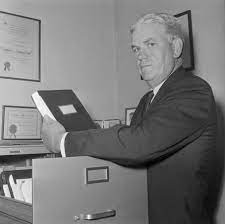The History Behind Roe Vs. Wade

Photo Source: New York Times
November 9, 2022
On January 2nd, 1973, The Supreme Court legalized the procedure of abortion in all 50 of the United States. Most of you are probably familiar with the Supreme Court Case Roe v Wade, but there is a lot more to this case than you probably know. Although it was overturned this year in Texas, it is important to know what brought people to argue this right in the first place.
Introducing Jane Roe: Jane Roe (an alias name) held the identity of a woman named Norma McCorvey, was born in Texas on September 22, 1947. Nora was born into an average American family, until her parents were divorced, as family issues were established. Her mother was a severe alcoholic, and left Nora with little to no structure.. Nora dropped out of school at the young age of 14, a year after her father left her family. After that, she was going to be raised by her older brother.
At one point, Nora was sent to a reform program, as she was frequently getting into trouble.. She got married, and was pregnant with her first child at the age of 16. Nora and her spouse, Elwood McCovrvey were divorced before the child was born. Her mother received custody of her first child. In 1967, she became pregnant with her second child, and immediately put it up for adoption after birth. In 1969, Nora became pregnant with her third unwanted child. Her adoption agency connected Nora with two lawyers, Sarah Widdington, and Linda Coffee. These two lawyers were freshly graduated from law school, and yearning to question the Texas Abortion Laws. When Nora’s lawyers presented an abortion to her, she was unaware with the true process of the termination of pregnancy. They described an abortion to Nora as a passing menstrual cycle, and was not specific with the fact that it was the termination of a living, “breathing” organism. Nora believed the abortion was a simple way to reverse her pregnancy.

Introducing Henry Wade: Henry Wade grew up in Texas, and raised eleven well educated children. Wade went from being an FBI agent, to being elected the Dallas County prosecutor in 1950. Henry Wade was a renowned American lawyer, known for never losing a case he tried. Henry Wade and his district attorneys office accumulated countless convictions- some being false. After prosecuting the killer of President John F Kennedy, he gained even more popularity. Wade was presented with the lawsuit filed against him by Roe in 1970. He was the person (due to his job position) to enforce the law prohibiting abortion in Texas. Wade had brought suit against multiple doctors for violating the abortion law, but was never actually connected with Jane Roe’s case.
Roe vs Wade: Opinions and Decisions
Jane Roe and her team argued that the right to an abortion was a constitutional right under the 4th amendment. According to Roe’s argument, the Texas law against abortion violate rights to domestic and sexual privacy; A woman is entitled to the option of terminating a pregnancy at any time, for any reason.
Wade and his team argued that the fetus is also a human being constitutionally protected by the 14th amendment of the Constitution; “No state shall make or enforce any law which shall abridge the privileges or immunities of citizens of the United States.”
Believe it or not, abortions are a crucial part of women’s healthcare. As goes for every other medical decision, it is left to the patient to decide. Although there are medical conditions leaving abortion to be the only option, there are still women who lack the resources to successfully raise a child, leaving abortion as there only option. Abortion being criminalized will not stop people from having abortions, but will take away the resources for them to have a safe abortion. Before this was overturned, women were promised both safe medication and infirmary forms of abortion. The Supreme court took all of these aspects into hand. There was an argument on when life truly starts, and if these rights even apply to a fetus. The Supreme Court came to a decision, legalizing abortion until a fetus becomes functional. This case was a very important and significance, because it doesn’t only give woman the right to an abortion, but it distinguished abortion as something controlled under the constitutional right to privacy.
In 2022, Texas has overturned Roe v Wade. In certain states, this puts women and their healthcare in a horrible situation. The procedure of abortion is a basic health care need for women, as well as a basic human right. Unfortunately in most cases, this argument isn’t about stopping abortions as a whole, but its about taking away the resources women need to go through this procedure safely. Doctors can lose their license for performing life saving abortions, and women can lose their lives because they do not to have access to a safe abortion. As Roe V Wade becomes overturned, we see why this being presented in the first place was so important.











Sydney Trout • Nov 16, 2022 at 10:00 am
You did a great job clearly stating this relevant issue in America. People need to acknowledge women’s rights and not just overlook how this affects those that cannot or do not what to have a baby. It all depends on the women’s environment, and if one is not stable, they are in no state to take care of and provide for a baby. I loved the structure of this article and the series of events you wrote that led up to the final conclusion.
Jessica Brann • Nov 16, 2022 at 9:57 am
This was a very helpful article! I never knew the history behind Roe vs Wade, and I’m glad I do now. I can’t imagine laws being in place that can be life-threatening for both women and children, it sounds ridiculous.